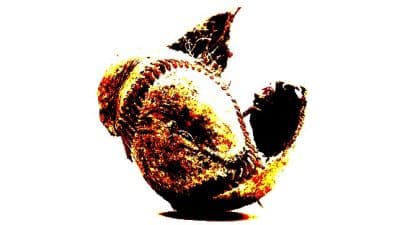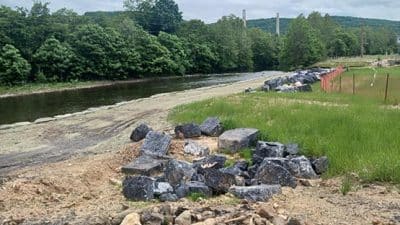
Seven agricultural-related projects are the recipients of Specialty Crop Block Grant Funding in Virginia.
The grant funding supports projects that advance specialty crop production and increase economic development in the Commonwealth. The funding will also help promote and enhance the competitiveness of Virginia’s specialty crops.
“This grant funding supports research and technological advancements that enhance the competitiveness of Virginia’s specialty crops while also helping to create new market opportunities for agricultural producers. I am also pleased that several of these projects will help to further position the Commonwealth as the leader in controlled environment agriculture,” Gov. Glenn Youngkin said. “These grants represent over a half-million-dollar investment in Virginia’s economy, which will boost economic development and create jobs in agriculture, Virginia’s largest private industry.”
Specialty crops are defined as fruits and vegetables, tree nuts, dried fruits, horticulture and nursery crops, including floriculture. Among this round of specialty crop grant awards are projects that advance research within controlled environment agriculture, frost damage prevention, Virginia specific disease management, evaluation of in-field water treatments, and potential economic benefits of using drones for pest management.
The following recipients and projects received funding:
Virginia Polytechnic Institute and State University, Dr. Laura Strawn, Blacksburg
Validating In-Field Water Treatments to Enhance Produce Safety
Virginia Tech will validate in-field water treatments to enhance produce safety for specialty crop farms. Findings will directly support Virginia specialty crop producers by generating data on the efficacy of in-field water treatments and how farms can monitor, verify and validate their use as a mitigation strategy to control contamination risks. Results will be communicated to stakeholders through extension activities at grower meetings, fact sheets/presentations and Virginia-hosted Produce Safety Alliance Grower Trainings.
Virginia Polytechnic Institute and State University, Dr. Vijay Singh, Painter
Use of Drone-Spray for Weed Management in Specialty Crops
The Virginia Tech Eastern Shore Agricultural Research and Extension Center weed science team will evaluate the potential economic benefits of Unmanned Aerial Systems (UAS)/drones. Current use of UAS for pest management is mainly limited to pest mapping and classification. However, with the availability of more robust UAS carrying pesticide payloads of 20-25 L, UAS has the potential to modernize agricultural fields due to lower costs, greater coverage capacity, and flexibility compared to AI-based agricultural robots and tractors. Virginia Tech’s previous research on soybean and corn showed that these technologies can provide higher efficacy of the herbicides that are applied.
River City Flower Exchange Cooperative Inc., Justine McFarland, Richmond
Increasing Sustainability and Competitiveness of Virginia’s Floriculture Industry by Improving Efficiency and Reducing Distribution Costs
The River City Flower Exchange Cooperative (RCFEC) will continue to increase public awareness and enhance the competitiveness of Virginia’s floriculture industry through increased access to sustainably grown flowers by developing an efficient and cost-effective delivery and outpost model. RCFEC has demonstrated success in the Richmond area for locally grown flowers and demand is in the Tidewater, Northern and Central Virginia areas for locally grown flowers.
Institute for Advanced Learning and Research, Dr. B. Sajeewa Amaradasa, Danville
Increase Yield in Greenhouse Soilless Strawberry Using Growth Promoting Bacteria
The Institute for Advanced Learning and Research (IALR), in partnership with Virginia Cooperative Extension, industry leaders and growers, will contribute to increasing greenhouse soilless strawberry yield by utilizing growth promoting bacteria. IALR will specifically use beneficial bacterial endophytes, which live inside plants and help plants grow better, tolerate stress conditions and fight diseases. The research outcome would help growers increase profits in hydroponically grown strawberry by using growth promoting bacteria.
Virginia Polytechnic Institute and State University, Dr. Douglas S. Higgins, Painter
Virginia Specific Disease Management Strategies to Protect Sweet Corn Seedlings
Seed rot and seedling blight remains a constant threat for Virginia’s sweet corn producers. Stand reductions over 50 percent and stunted plants with low vigor are common in affected sweet corn, especially in the popular super sweet type hybrids and early plantings. Seed treatment with combinations of different fungicides are the most cost-effective means to manage these pathogens.
Virginia Polytechnic Institute and State University, Dr. Kaylee South, Danville
Next-Generation Biofungicides for Application in Controlled Environment Agriculture
Virginia Tech researchers will develop and evaluate the use of biofungicides for the control of common diseases of food crops produced in controlled environment agriculture, which is limited in the number of pesticides that can be utilized. The goal will be fulfilled by developing and evaluating RNAi-based biofungicides targeting grey mold in strawberry production and downy mildew in spinach production.
Virginia Polytechnic Institute and State University, Dr. Sherif M. Sherif, Winchester
Preserving Apples in the Face of Frost: Evaluating the Efficacy of Cryoprotectants
Spring frost represents a formidable abiotic stressor that poses a significant economic threat to fruit production worldwide. The annual cost of spring frost and freeze damage reaches millions of dollars and climate change is projected to exacerbate the situation. Agrochemical companies have developed cryoprotectants that are believed to help prevent frost damage by increasing solute concentration and lowering the freezing point of intracellular fluids. Virginia Tech will investigate the impact of cryoprotectants on apple trees in the Mid-Atlantic region to advance the development of more practical and cost-effective strategies for reducing the adverse effects of spring frosts on apple production.
The 2018 Farm Bill annually authorizes the Specialty Crop Block Grant program funding. Fiscal year 2023 funding is awarded for a three-year period beginning September 30, 2023. The awards resulted from a competitive grant process established by the Virginia Department of Agriculture and Consumer Services (VDACS) for funding provided by the U.S. Department of Agriculture’s (USDA) Agricultural Marketing Service (AMS) Specialty Crop Block Grant Program.
“These grant awards are great news for Virginia producers and further Governor Youngkin’s commitment to using agriculture as a growth engine and source of jobs in rural areas. I congratulate these educational institutions and organizations for their innovative research that will not only help Virginia growers, but also add value and enhance market opportunities across the Commonwealth,” said Secretary of Agriculture and Forestry Matthew Lohr.










